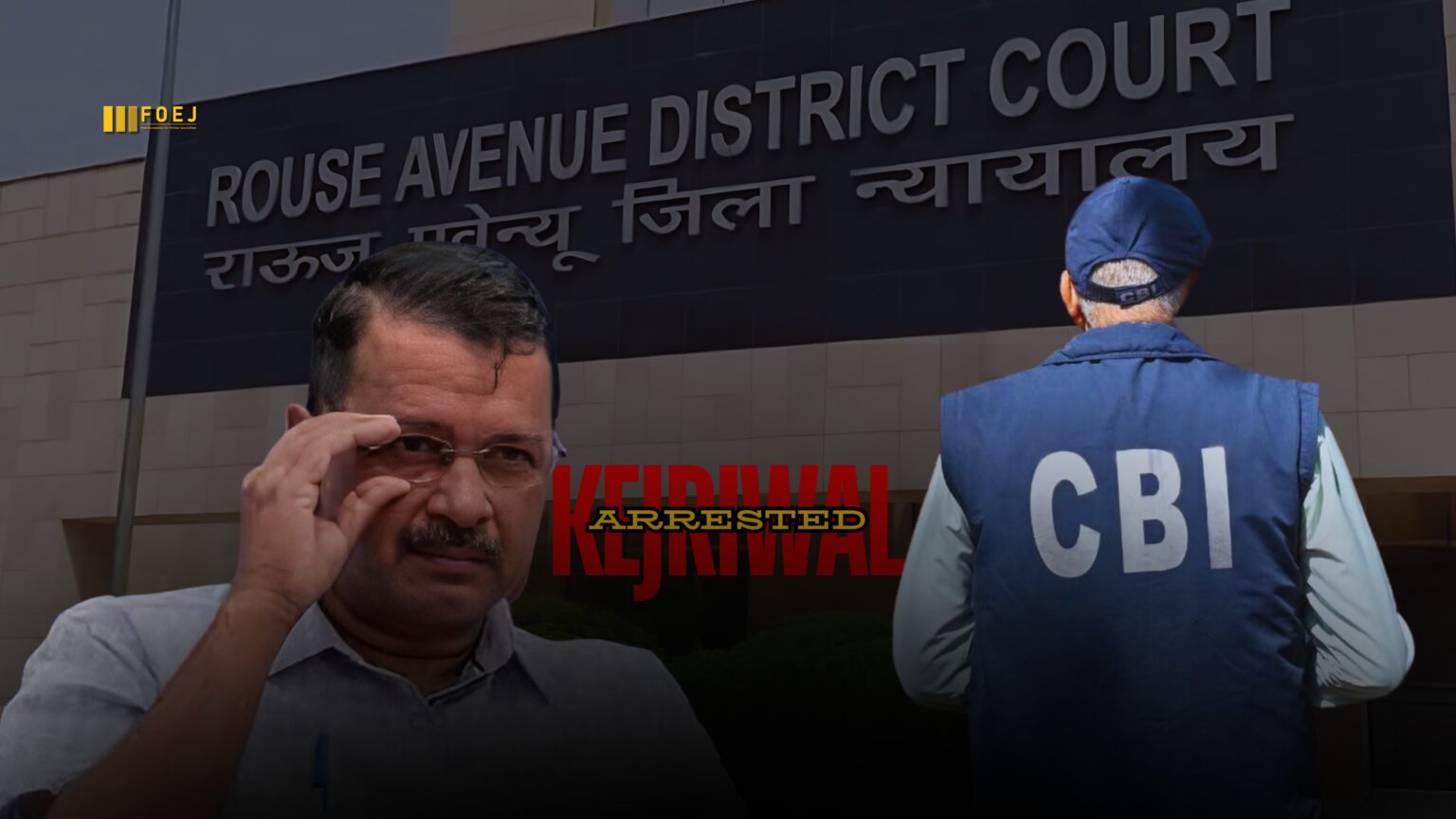The CBI arrested Delhi Chief Minister Arvind Kejriwal inside Delhi’s Rouse Avenue Court in the alleged liquor policy case on Wednesday after the Rouse Avenue Court allowed the agency to examine the AAP supremo in court.
Following this, the court allowed Delhi Chief Minister Arvind Kejriwal to withdraw his plea against the High Court’s interim stay on the trial court’s bail order in the Enforcement Directorate (ED) case.
Kejriwal was arrested by the ED in the money laundering case stemming from the alleged liquor policy scam on March 21. He is presently lodged in Tihar Jail.
Kejriwal’s lawyers argued in the Rouse Avenue Court this morning that the agency’s move to arrest the AAP leader at this point showed it had acted “in a most biased manner”.
Kejriwal’s lawyer, Vikram Chaudhari, also said he was not informed about the CBI presenting an application before the court and securing an order to question him.
In response to which, the CBI, represented by senior advocate DP Singh, said that investigation was the prerogative of the agency, and the law does not say that the accused should be informed.
“The law does not say that I have to tell them when I want to go and investigate him. The same thing happened in the case of K. Kavitha. I only need the court’s permission,” the CBI said.
Meanwhile, Kejriwal’s lawyer argued that no Section 41 notice was given under the Code of Criminal Procedure (CrPC) to appear for questioning.
“If My lords allow them to arrest him (Kejriwal), my lords will be allowing their shoulders to be used as a gun to shoot him. If My lords give them the permission to arrest, my lords will effectively be sanctifying the remand,” he said
“If bail is reversed, he will go back to jail…”: Abhishek Singhvi
Earlier this week in the Supreme Court, which granted him interim bail last month so that Kejriwal could campaign in the general election, the AAP leader argued that the “balance of convenience” was in his favour.
However, senior advocate Abhishek Singhvi had said that “If bail is reversed, he will go back to jail… as he did after the Supreme Court’s interim release,” He also referred to the order granting Mr Kejriwal that interim bail, which acknowledged that the AAP leader is not a “habitual offender” and has no criminal antecedents.
Meanwhile, Kejriwal argued why can’t he be free when judgment was in his favour.
“Why can’t I be free in the interim? I have a judgment in my favour…” kejriwal said
Last Thursday Mr Kejriwal was given regular bail by the Rouse Avenue Court
Why Was Kejriwal Arrested?
Delhi Chief Minister Arvind Kejriwal was arrested on March 21 by the Directorate of Enforcement (ED) in connection with the Delhi liquor policy case. The arrest came after Kejriwal skipped nine summonses by the investigating agency in the case.
In November 2021, the Delhi government, under Arvind Kejriwal’s leadership, introduced a new excise policy aiming to modernize alcohol sales in the city. This move received mixed reviews, with some applauding its progressive approach while others raising concerns about its potential financial and public health implications.
Meanwhile, the enforcement directories alleged that the policy was intentionally made with loopholes to favor the AAP. It accused AAP leaders of receiving kickbacks from liquor businesses in exchange for preferential treatment.
In spite of receiving nine summonses between the periods of October 2023 and March 2024, Kejriwal was apprehended after the Delhi High Court rejected his plea for protection from arrest on March 21.









